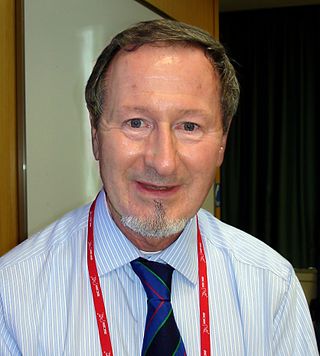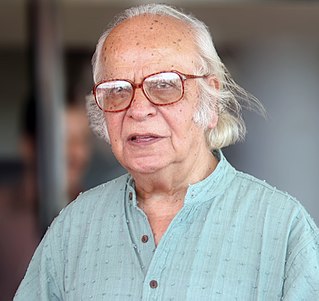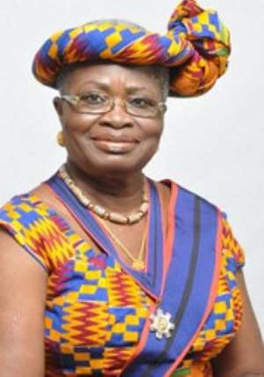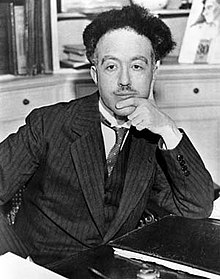
The Nobel Prizes are five separate prizes that, according to the 1895 will of Alfred Nobel, a Swedish chemist, engineer, and industrialist who invented dynamite, are awarded to "those who, during the preceding year, have conferred the greatest benefit to humankind." Alfred Nobel died the following year, in 1896, and prizes were first awarded in 1901. A sixth prize, for Economic Sciences, established by the Bank of Sweden, is usually also included.

The Nobel Prize in Physics is a yearly award given by the Royal Swedish Academy of Sciences for those who have made the most outstanding contributions for humankind in the field of physics. It is one of the five Nobel Prizes established by the will of Alfred Nobel in 1895 and awarded since 1901, the others being the Nobel Prize in Chemistry, Nobel Prize in Literature, Nobel Peace Prize, and Nobel Prize in Physiology or Medicine. Physics is traditionally the first award presented in the Nobel Prize ceremony.

Douglas Dean Osheroff is an American physicist known for his work in experimental condensed matter physics, in particular for his co-discovery of superfluidity in Helium-3. For his contributions he shared the 1996 Nobel Prize in Physics along with David Lee and Robert C. Richardson. Osheroff is currently the J. G. Jackson and C. J. Wood Professor of Physics, emeritus, at Stanford University.

The Carlos J. Finlay Prize is a biennial scientific prize sponsored by the Government of Cuba and awarded since 1980 by the United Nations Educational, Scientific and Cultural Organization (UNESCO) to people or organizations for their outstanding contributions to microbiology and its applications. Winners receive a grant of $5,000 USD donated by the Government of Cuba and an Albert Einstein Silver Medal from UNESCO.

Yash Pal was an Indian scientist, educator and educationist. He was known for his contributions to the study of cosmic rays, as well as for being an institution-builder. In his later years, he became one of the leading science communicators of the country.
Science outreach, also called education and public outreach or simply public outreach, is an umbrella term for a variety of activities by research institutes, universities, and institutions such as science museums, aimed at promoting public awareness of science and making informal contributions to science education.

The Nobel Prize in Chemistry is awarded annually by the Royal Swedish Academy of Sciences to scientists in the various fields of chemistry. It is one of the five Nobel Prizes established by the will of Alfred Nobel in 1895, awarded for outstanding contributions in chemistry, physics, literature, peace, and physiology or medicine. This award is administered by the Nobel Foundation, and awarded by the Royal Swedish Academy of Sciences on proposal of the Nobel Committee for Chemistry which consists of five members elected by the Academy. The award is presented in Stockholm at an annual ceremony on 10 December, the anniversary of Nobel's death.
Gokulananda Mahapatra was an Indian scientist and science fiction writer, who popularized science in the Odia language. Mahapatra has authored over 95 science fiction and children science books. Some of his notable contributions are Krutrima Upagraha, Prithibi bahare Manisha, Chandra ra Mrutyu, Nishabda Godhuli, Madam Curie and Nila Chakra Bala Sapare. He was the founding member of Orissa Bigyana Prachar Samhiti with the objective of making science popular in the state of Orissa. He received Orissa Sahitya Akademy Award for his book E juga ra sreshtha abiskara.

Marian Ewurama Addy was a Ghanaian biochemist and the first Host of the National Science and Maths Quiz. The first Ghanaian woman to attain the rank of full professor of natural science, Addy became a role model for school girls and budding female scientists on the limitless opportunities in science, technology, engineering and mathematics (STEM) disciplines. Marian Addy was also a Fellow of the Ghana Academy of Arts and Sciences, elected in 1999. In the same year, she was awarded the UNESCO Kalinga Prize for the Popularization of Science.
Narender K. Sehgal was an Indian physicist, scientific administrator, and science populariser. He was born in Lahore. He worked as Scientific Officer in the Theoretical Reactor Physics Division of Bhabha Atomic Research Centre. In 1963 he went to US for his MSc and PhD in particle physics from the University of Wisconsin–Madison. He became professor of physics at the Somali National University in Magadiscio, East Africa. He returned to India in 1978 as visiting scientist at the Space Applications Centre (SAC) of Indian Space Research Organisation (ISRO). In 1982 he joined the Department of Science and Technology of the Government of India. He was head of the National Council for Science and Technology Communication (NCSTC) and later Vigyan Prasar, where he remained until his retirement in 2000.
Xiangyi Li is a Chinese scientist, and the current director and co-founder of the China Science and Technology Museum in Beijing, China. Li was awarded the 2013 UNESCO Kalinga Prize for his contributions to popularization of science.
Dipankar Das Sarma, popularly known as D.D. Sarma, is an Indian scientist and structural chemist, known for his researches in the fields of Solid State Chemistry, Spectroscopy, Condensed Matter Physics, Materials Science, and Nanoscience. He is a former MLS Chair Professor of Physics and Chairman of the Centre for Advanced Materials and the GAST Professor of Uppsala University, Sweden, A recipient of TWAS Physics Prize and the UNESCO Biennial Javed Husain Prize, Sarma was honored by the Council for Scientific and Industrial Research (CSIR), Government of India, in 1994, with the Shanti Swarup Bhatnagar Prize for Science and Technology.
Dorairajan Balasubramanian, popularly known as Professor Balu, is an Indian biophysical chemist and ocular biochemist. He is a former President of Indian Academy of Sciences and a director of research at the Prof. Brien Holden Eye Research Centre of L. V. Prasad Eye Institute, Hyderabad. A recipient of the National Order of Merit (France), Balasubramanian was honored by the Government of India, in 2002, with the fourth highest Indian civilian award of Padma Shri
Sant Singh Virmani is a US-based Indian plant breeder, rice scientist and a former Principal Scientist at the International Rice Research Institute (IRRI). He served IRRI from 1979 to 2005 and retired from its service as the deputy head of the Plant Breeding, Genetics and Biochemistry Division.
The UNESCO Prize for Girls’ and Women’s Education is an award, recognizing outstanding contributions to the advancement of female education. Supported by the Government of the People’s Republic of China, the Prize is conferred annually to two laureates. The prize awards USD 50,000 to each laureate to further their work in the area of girls’ and women’s education. Laureates are nominated by Member States, in consultation with their National Commissions, as well as non-governmental organizations in official partnership with UNESCO. They are recognized by UNESCO's Director General.

The University College of Science, Technology and Agriculture are two of five main campuses of the University of Calcutta (CU). The college served as the cradle of Indian Sciences by winning the Nobel Prize in Physics in 1930 and many fellowships of the Royal Society London.
Erik Jacquemyn is a Belgian scientist. In 1985 he became the Flemish Government’s Minister-President’s science and technology advisor. He was instrumental in the establishment of the Flemish Science Week, Flanders Science Week, the Science Festival, and the Science Truck among others. In 2000 he established Belgium’s first scientific hands-on centre – the Technopolis. In 2011 he became Chair of the International Program Committee (IPC). He also co-authored the Mechelen Declaration in 2014.

Savitri Sahni, born Savitri Suri, was president of the Birbal Sahni Institute of Paleosciences from 1949 to 1969.







